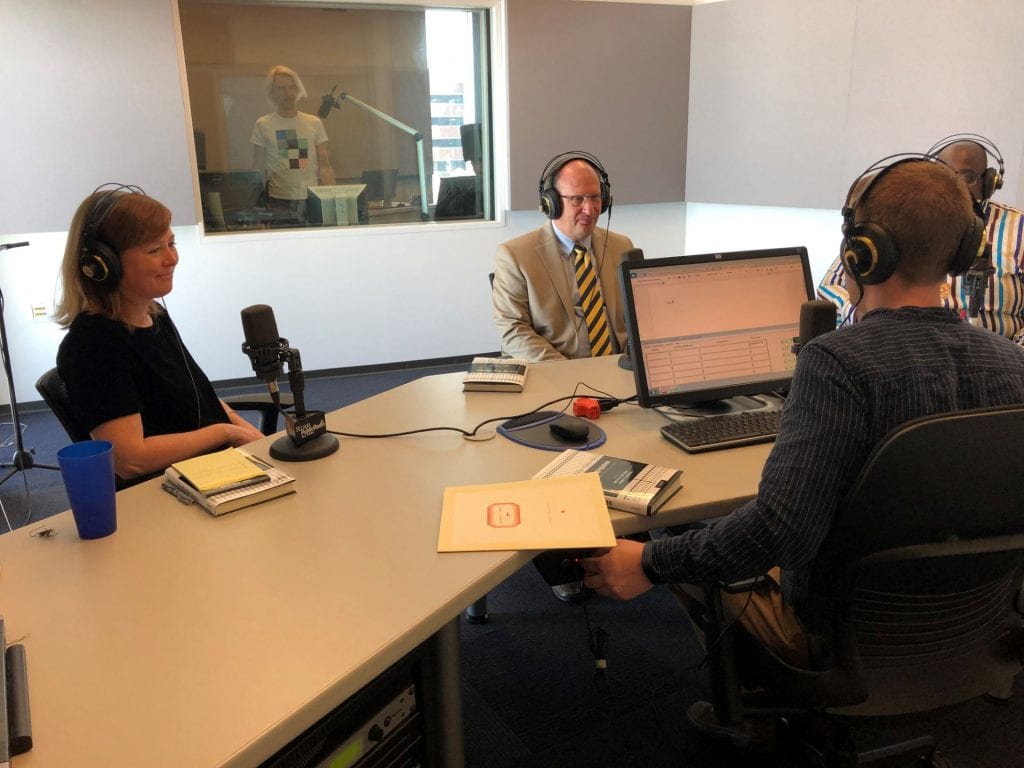Washington University’s Molly Metzger and Hank Webber took to the airwaves on April 9 to discuss segregation. Will Jordan, the executive director of the Metropolitan St. Louis Equal Housing and Opportunity Council (EHOC), also participated in the conversation on St. Louis on the Air, which executive producer Alex Heuer led.
“There’s a fallacy out there that we got here [to a segregated society] because of personal preferences,” Metzger said. “In reality, it has been a series of public policy decisions on the federal level and down to the local level.
“Policies like red-lining, where the federal government underwrote, supported mortgages for white families in the suburbs mostly, and didn’t allow those same mortgages for black families, even middle-class, professional black households. So policies like that really created the structures that we’re still dealing with today.”
To listen to the program, go to “’Facing Segregation’ Co-Editors, EHOC Rep Share Evidence-Based Solutions for St. Louis and Beyond.”
Metzger and Webber are co-editors of the new book “Facing Segregation: Housing Policy Solutions for a Stronger Society.”
“The effects of segregation are negative for all of us,” Webber said. “For those people who do not have access to high quality neighborhoods, who become socially isolated, the evidence is overwhelming that there are negative effects on their children and on the life course.
“How well you do in life has a great deal to do with where you live, and, to the degree that we force people to live in places of low opportunity, there are negative results.”
Metzger is an assistant professor at the Brown School and faculty director of Thriving Communities at the Center for Social Development. Webber is executive vice chancellor for administration at Washington University and a professor of practice at the Brown School. Jordan and his colleagues at EHOC work to ensure equal access to housing through education, counseling, investigation and enforcement.
